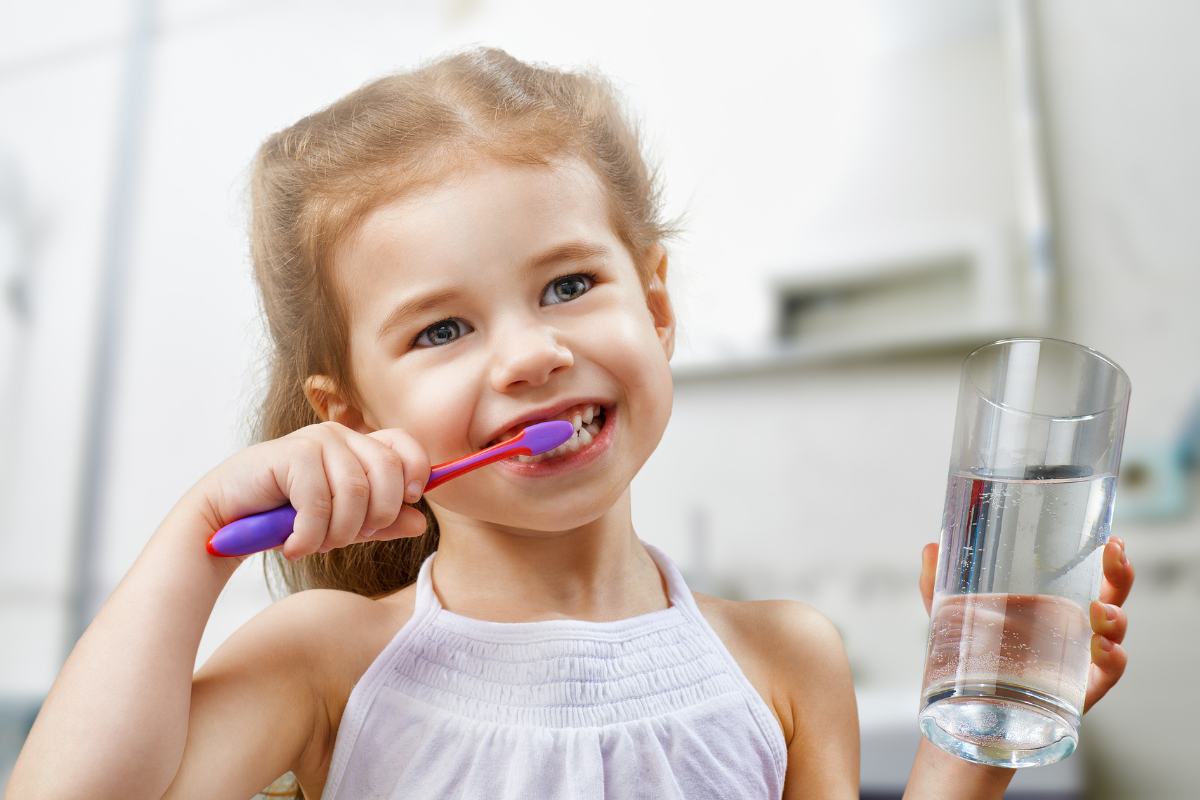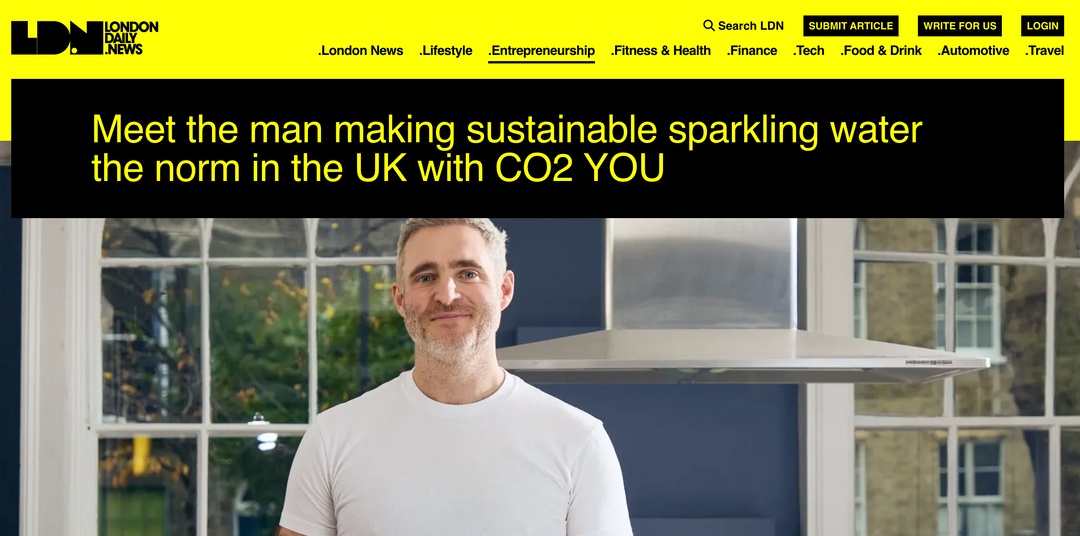Is Sparkling Water Bad for Your Teeth? A Comprehensive Analysis

There are plenty of myths about sparkling water out there. Although its health benefits have been proven, including its impact on bone and heart health, weight loss, and hydration, there is a persistent myth that sparkling water is bad for your teeth.
From understanding the mild acidity of sparkling water to exploring healthier alternatives, this blog aims to equip you with the knowledge to make informed decisions about your oral care.
So, whether you're a sparkling water enthusiast or someone who's just curious, stick around for an enlightening read. Remember, maintaining good oral health is not just about brushing and flossing, but also about what you sip throughout the day.
How Does Sparkling Water Affect Your Teeth?
Sparkling water, with its refreshing fizz, has become a popular choice for many. But does this bubbly beverage pose a threat to your oral health? The concern arises from the fact that sparkling water has a higher acid level due to its carbonation. This has led to speculation that it could potentially weaken tooth enamel, the hard outer shell of your teeth where cavities first form.
However, research suggests that sparkling water is generally safe for your teeth. A study comparing the effects of sparkling water and regular water on tooth enamel found no significant difference. This indicates that despite being slightly more acidic, sparkling water is just as harmless to your teeth as ordinary water.
But it's important to note that not all sparkling waters are created equal. Those flavoured with citrus or added sugars can increase the risk of tooth decay. So, while enjoying the sparkle, be mindful of what's in your water.
The science behind the effects of sparkling water on your teeth is quite interesting. Here are a few key points:
- Acidity Levels: Sparkling water does have a slightly higher acid level than regular water due to its carbonation. However, research suggests that this doesn't significantly affect tooth enamel, the outer shell of your teeth where cavities first form.
- Fluoridated Water: Regular, fluoridated water is still the best beverage for your teeth. It naturally fights cavities, washes away leftover food particles, and prevents dry mouth, which can increase your risk of cavities.
While sparkling water is a better choice than sugary drinks, it's not a substitute for regular water when it comes to maintaining your dental health.
Is Drinking Sparkling Water Bad for Your Teeth?
The question, "Is drinking sparkling water bad for your teeth?" is a common one, especially among those who enjoy the fizzy refreshment. The answer isn't as straightforward as you might think. While sparkling water is indeed more acidic than still water due to the carbonation process, it's significantly less erosive than other popular beverages like sports drinks, coffee, or fruit juice.
According to a study by the Universities of Sussex and Birmingham, sparkling water is categorised as "minimally erosive". This means that for a healthy person sugar-free beverages like sparkling water are not going to cause cavities. However, it's important to note that "minimally erosive" doesn't necessarily mean it's completely harmless.

While it's a healthier alternative to sugary sodas, it's not advisable to replace regular water with its sparkling counterpart entirely. Especially if your regular water contains fluoride, which is beneficial for oral health. So, while you can enjoy your sparkling water, moderation and balance are key.
Expert Advice on Drinking Sparkling Water
- Stay Hydrated: Drinking sparkling water can help you stay hydrated, which is essential for overall health and oral care.
- Rinse After Drinking: After you drink sparkling water, rinse your mouth with plain water. This helps dilute any mild acids and washes them away from your teeth.
- Avoid Acidic Additions: Adding slices of lemon, lime, or orange to your sparkling water can increase its acidity, potentially leading to tooth enamel erosion. It's best to enjoy your sparkling water plain.
- Check the Label: If you're drinking bottled sparkling water, always check the label. If it contains sugar, citric acid, or flavourings, it could contribute to tooth erosion.
- Time Your Brushing: Try to wait 20-30 minutes after drinking sparkling water before brushing your teeth. This helps prevent damage to the enamel, which can be weakened by the acids in the water.
Sparkling Water vs. Other Beverages: A Dental Perspective
When it comes to the impact on your teeth, soda water and fizzy water are not as innocent as plain water. The carbonation process that gives these beverages their satisfying fizz also introduces a higher acid level. This acid can potentially contribute to the erosion of tooth enamel, the hard outer shell of your teeth where cavities first form.
However, it's important to note that the acid level in carbonated water is significantly less than that found in soda. Soda is particularly damaging to teeth due to its high sugar content, which combines with the acid from carbonation to create a potent threat to dental health.
So, while sparkling water is more acidic than plain water, it's a far cry from the acidity and sugar content of soda. It's a healthier choice if you're craving a fizzy drink, but it's still wise to consume in moderation to protect your teeth. Other drinks also have an impact:
- Coffee: Coffee is known for its high acid content, which can erode tooth enamel over time. This can lead to increased tooth sensitivity and cavities. However, if consumed in moderation and followed by a rinse of plain water, the effects can be mitigated.
- Fruit Juice: Fruit juices, especially citrus ones, have a high acid level that can be harmful to your teeth. The acid can erode the enamel, leading to tooth sensitivity and decay. It's best to limit your intake and rinse your mouth with plain water after consumption.
- Sparkling Water: Compared to coffee and fruit juice, plain sparkling water poses a lesser risk to your teeth. Although it's slightly more acidic than still water, it's far less damaging than high-acid beverages. However, flavoured or sweetened sparkling water can increase the risk of enamel erosion, so it's best to stick to the plain variety.
Preventive Measures for Maintaining Oral Health
Maintaining oral health is paramount, especially when indulging in fizzy delights like sparkling water. This section will delve into preventive measures that can help protect your teeth from potential harm. We'll explore expert advice and recommendations, and how to enjoy your favourite sparkling water without compromising your oral health.

Remember, prevention is always better than cure, especially when it comes to tooth decay.
- Choose wisely: Opt for plain sparkling water over fruit-flavoured ones. The latter often contain higher acid levels that can harm your enamel.
- Rinse after drinking: After enjoying your fizzy drink, rinse your mouth with still, unsweetened water. This helps dilute the mild acids and wash them away from your teeth.
- Avoid sipping throughout the day: Try to enjoy your sparkling water in one sitting or with meals. This way, you aren't exposing your teeth to the slightly higher level of acid it contains over and over again.
To maintain good oral health while enjoying sparkling water, expert advice and recommendations are crucial. One such recommendation is to rinse your mouth with plain water after drinking sparkling water. This simple act can help to neutralise the acidity and protect your teeth from potential damage.
Another expert advice is to avoid brushing your teeth immediately after consuming sparkling water. The reason being, brushing can spread the acid around your mouth, leading to more harm than good. It's best to wait at least 30 minutes before brushing. You can also enjoy these guilt-free beverages:
- Plain Water: The best choice for your teeth, plain water, especially fluoridated, helps fight cavities and keeps your mouth from drying out.
- Herbal Tea: A warm cup of herbal tea can be a comforting alternative. It's low in acid and doesn't cause enamel damage.
- Milk: Rich in calcium, milk strengthens teeth and bones. However, be mindful of its sugar content.
- Coconut Water: A refreshing option, coconut water is hydrating and contains essential minerals. But, watch out for brands with added sugars.
- Unsweetened Fruit Juices: These can be a healthy alternative, but remember, even natural sugars can lead to tooth decay if consumed in large amounts.
Final Thoughts on the Effects of Sparkling Water on Your Teeth
While sparkling water does have a mild acidity level, it is a healthier alternative to high acid beverages like soda or fruit juice. Consuming modest amounts of plain sparkling water, especially with meals, is unlikely to cause significant damage to your teeth. However, it's crucial to maintain good oral hygiene practices, such as rinsing your mouth with still water after drinking sparkling water and waiting for a while before brushing your teeth.
If you're concerned about the effects of sparkling water on your oral health, it's always best to seek expert advice from your doctor or dentist.
They can provide a personalised oral health assessment and recommend products like sensitive tooth toothpaste that can provide sensitivity protection. The key to maintaining dental health is balance. Enjoy your favourite sparkling water, but also remember to drink plenty of plain water throughout the day.
This way, you can enjoy the fizz without worrying about tooth decay. Remember, you can enjoy healthy sparkling drinks at home using a water carbonator - and CO2 YOU will deliver the cartridges you need to your door. It not only reduces the cost of buying sparkling water over time, but means you know exactly what you are drinking at all times. Join the refill programme today!


